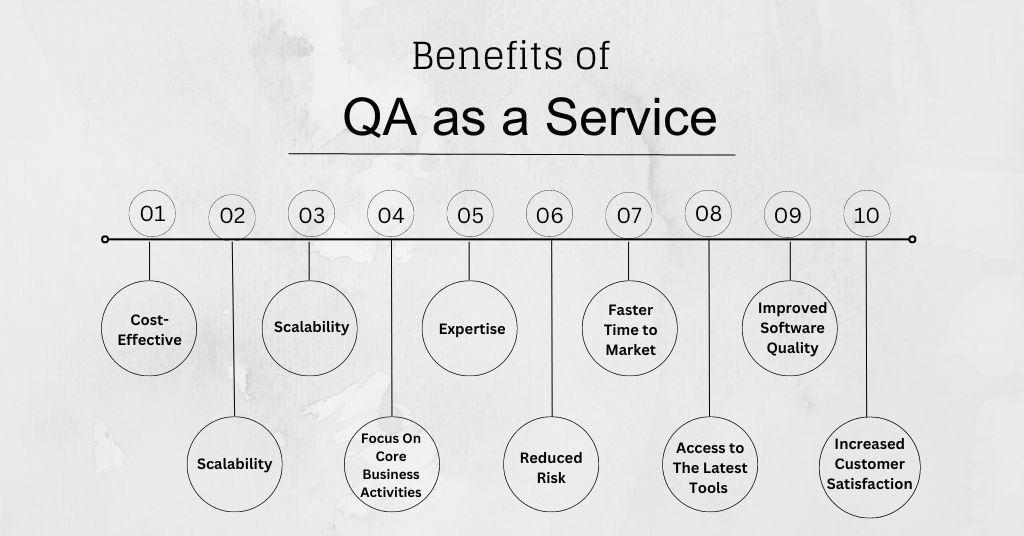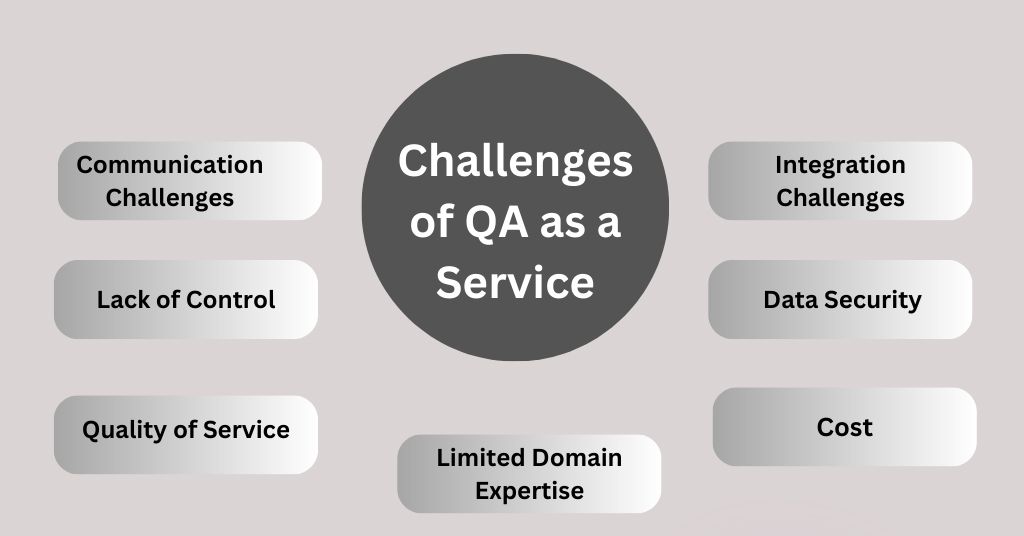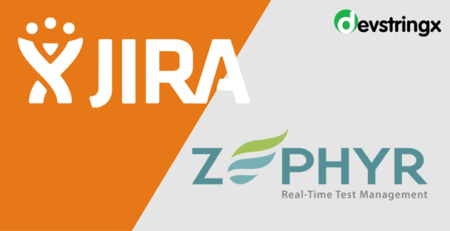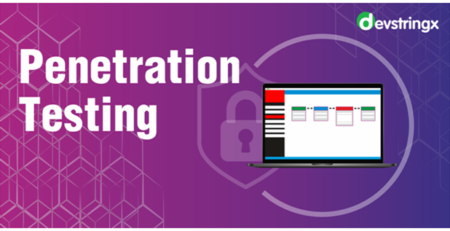What Is Quality Assurance as a Service? – Devstringx
What Is QA as a Service?
QA (Quality Assurance) as a service is a model in which companies outsource their software testing needs to specialized companies that provide quality assurance services. These companies have a team of experts who have experience in testing software applications across different platforms and devices.
The QA as a service model helps companies save time and money by allowing them to focus on their core business activities while ensuring the quality of their software applications. The service providers use a range of testing tools and techniques to identify and fix any defects in the software before it is released to the end users.
The service providers may offer a range of QA services, including functional testing, regression testing, load testing, security testing, and usability testing. They may also offer test automation services to help companies reduce the time and effort required for testing.
One of the key benefits is its scalability. Companies can easily scale their testing needs up or down based on their requirements, without having to invest in additional resources or infrastructure. This makes it an attractive option for startups and small businesses that may not have the resources to set up an in-house testing team.
What is QA testing?
QA testing (Quality Assurance testing) is the process of verifying and validating software applications to ensure that they meet the specified quality standards and perform as expected. The main goal of QA testing is to identify defects or bugs in the software application and ensure that they are fixed before the application is released to the end users.
The QA testing process involves a series of activities, including planning, designing test cases, executing test cases, and reporting defects. It also involves a range of testing techniques, such as functional testing, performance testing, security testing, and usability testing, to name a few.
-
Functional Testing
It is the most commonly used testing technique, which involves testing the software application’s functionality to ensure that it works as expected. This includes testing individual components, modules, and the application as a whole.
-
Performance Testing
Performance testing involves the software application’s performance under different load conditions to ensure that it can handle the expected number of users and transactions without slowing down or crashing.
-
Security Testing
It involves testing the software application’s security features to ensure that it can protect sensitive data and prevent unauthorized access.
-
Usability Testing
It involves testing the software application’s user interface and user experience to ensure that it is user-friendly and intuitive.
Overall, QA testing plays a critical role in ensuring the quality of software applications and ensuring that they meet the end-users expectations.
Benefits of QA as a Service

Here are some benefits of QA (Quality Assurance) as a service:
-
Cost-Effective
It can help companies save costs by reducing the need for in-house testing teams and infrastructure.
-
Scalability
It can easily scale up or down based on the company’s needs, without the need for additional resources or infrastructure.
-
Expertise
QA service providers have experienced and skilled testers who are well-versed in the latest testing methodologies and techniques.
-
Faster Time to Market
By outsourcing their testing needs, companies can speed up the software development process and get their products to the market faster.
-
Improved Software Quality
QA service providers use a range of testing tools and techniques to identify and fix defects in the software, ensuring that it meets the required quality standards.
-
Flexibility
QA service providers can offer a range of testing services, including functional testing, regression testing, security testing, and load testing, among others.
-
Focus On Core Business Activities
Outsourcing testing allows companies to focus on their core business activities and leave the testing to the experts.
-
Reduced Risk
QA service providers help reduce the risk of software failure by identifying and fixing defects before the application is released to the end users.
-
Access to The Latest Tools and Technologies
QA service providers use the latest testing tools and technologies to ensure that the software application is thoroughly tested.
-
Increased Customer Satisfaction
By ensuring that the software application is of high quality and meets the end-users expectations, companies can increase customer satisfaction and loyalty.
Good to Read:- Roles and Responsibilities of QA In Software Development
How Does QA Work as a Service?
QA (Quality Assurance) as a service is a model in which companies outsource their software testing needs to specialized companies that provide quality assurance services. Here is a general overview of how QA as a service works:
-
Requirement Analysis
The QA service provider will first analyze the software application’s requirements to understand the scope and objectives of the testing.
-
Test Planning
Based on the requirements analysis, It offers will create a test plan that outlines the testing approach, test cases, and test schedule.
-
Test Case Design
Its provider will design test cases that cover all the application’s functional and non-functional requirements, such as performance, security, and usability.
-
Test Execution
The QA service provider will execute the test cases using a range of testing tools and techniques to identify defects or bugs in the software application.
-
Defect Reporting
If any defects or bugs are found during the testing process, the QA service provider will report them to the development team for fixing.
-
Test Automation
The QA service provider may also use test automation tools to speed up the testing process and improve test coverage.
-
Test Reporting
At the end of the testing process, the QA service provider will provide a comprehensive test report that includes the test results, defect summary, and recommendations for further testing or improvement.
Overall, QA as a service is a flexible and scalable model that allows companies to outsource their testing needs to experienced and skilled testers, ensuring that their software applications meet the required quality standards and perform as expected.
Advantages and Disadvantages of QA
QA (Quality Assurance) testing has several advantages and disadvantages. Here are some of the most significant advantages and disadvantages of QA:
Advantages
- QA testing helps identify and fix defects and bugs in the software application, resulting in higher-quality software that meets the end-users expectations.
- QA testing helps reduce the risk of software failure, which can lead to financial losses and damage to the company’s reputation.
- Investing in QA testing may be more cost-effective than fixing defects and bugs after the application has been released to the market.
- QA testing helps ensure that the software application is of high quality and meets the end-users expectations, leading to increased customer satisfaction and loyalty.
- QA testing helps speed up the software development process by identifying and fixing defects early, resulting in a faster time-to-market.
Disadvantages
- QA testing can be time-consuming, especially for large and complex software applications, which can delay the software development process.
- Investing in QA testing may require a significant upfront investment in terms of resources and infrastructure.
- QA testing may not cover all possible scenarios and use cases, leading to undetected defects and bugs.
- QA testing may give the development team a false sense of security, leading to complacency and a lack of attention to detail.
- QA testing often involves using testing tools, which can be expensive and require specialized expertise to use effectively.
Good to Read:- Tips on Effective Offshore QA Team Management
Who Can Benefit from QA as a Service?
QA (Quality Assurance) as a service can benefit any organization that develops software applications, regardless of its size or industry. Here are some examples of organizations that can benefit from QA as a service:
-
Software Development Companies
Companies that develop software applications can benefit from it to ensure that their software meets the required quality standards and performs as expected.
-
Small and Medium-Sized Enterprises (SMEs)
SMEs may not have the resources or expertise to establish an in-house testing team, making QA as a service a more cost-effective and efficient option.
-
Startups
Startups may not have the resources to invest in establishing an in-house testing team, making QA as a service a viable option to ensure that their software application is thoroughly tested.
-
Independent Software Vendors (ISVs)
ISVs that develop and sell software applications can benefit from QA as a service to ensure that their software meets the required quality standards and customer expectations.
-
Government Organizations
Government organizations that develop software applications for internal or external use can benefit from QA as a service to ensure that their software meets the required security and quality standards.
Challenges of QA as a Service

While QA (Quality Assurance) as a service can offer numerous benefits, there are also several challenges associated with it. Here are some of the challenges of QA as a service:
-
Communication Challenges
Communication challenges can arise between the development team and the QA service provider, especially if they are in different time zones or speak different languages.
-
Lack of Control
The development team may feel a lack of control over the testing process, as it is being carried out by a third-party service provider.
-
Quality of Service
The quality of service provided by the QA service provider may not meet the required standards, leading to delays, cost overruns, and software defects.
-
Integration Challenges
Integrating the QA service provider’s testing results into the development process can be challenging, especially if the software development process is already underway.
-
Data Security
The QA service provider may have access to sensitive data, which can raise concerns about data security and confidentiality.
-
Cost
The cost of QA as a service can be higher than investing in an in-house testing team. Especially in the long run.
-
Limited Domain Expertise
Some QA service providers may have limited domain expertise, making it challenging to test software applications that require specialized knowledge or skills.
Good to Read:- How to Hire a QA Engineer in One Day?
Common Misconceptions
There are several misconceptions about QA (Quality Assurance) as a service. One common misconception is that it is only for large organizations. In reality, It can benefit organizations of all sizes. Smaller organizations that may not have the resources to establish an in-house testing team can benefit from QA as a service, as it can be a more cost-effective and efficient option.
Another common misconception is that It’s only for software development companies. However, QA as a service can benefit organizations in any industry that requires software applications.
Finally, some may believe that QA as a service is a one-size-fits-all solution. In reality, each organization’s testing requirements are unique, and QA service providers can tailor their services to meet those specific needs.
Popular QA (Quality Assurance) As a Service Provider Includes
- Devstringx Technologies is a QA testing company that provides services to organizations across various industries. They offer a wide range of testing services, including functional testing, localization testing, and usability testing.
- Consultants is a software testing company that offers services in various areas such as test automation, performance testing, and accessibility testing. They work with clients in various industries, including finance, healthcare, and government.
- TestFort is an independent software testing company that provides QA services to organizations across various industries. Their services include functional testing, security testing, and performance testing.
- QA Mentor is a software testing company that offers QA services such as functional testing, test automation, and security testing. They work with clients in various industries, including healthcare, finance, and e-commerce.
Conclusion
QA as a service offers several benefits to companies, including cost-effectiveness, scalability, expertise, faster time-to-market, improved software quality, flexibility, reduced risk, access to the latest tools and technologies, and increased customer satisfaction.
Outsourcing testing to specialized companies can also help companies focus on their core business activities, leaving the testing to the experts. This model involves a range of activities, including requirement analysis, test planning, test case design, test execution, defect reporting, test automation, and test reporting.
While QA testing has several advantages, it also has some disadvantages, such as the potential for miscommunication between the development and testing teams and the possibility of overlooking critical defects or bugs. Overall, It can help companies achieve their software quality goals. Apart from that deliver high-quality software applications to their end users.
Contact Us & Drop Your Query to Hire a Skilled QA Engineer From Devstringx & Elevate Your Product to New Heights!














